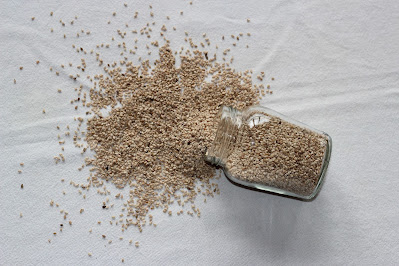Warming up before exercise is essential for several reasons. A proper warm-up can help to prepare your body for the physical demands of exercise and reduce the risk of injury. It can also help to improve your performance during the exercise session.
Here are some of the reasons why warming up before exercise is important:
Increases blood flow: A warm-up helps to increase blood flow to the muscles, which in turn helps to deliver oxygen and nutrients to those muscles. This can help to improve the efficiency of the muscles and reduce the risk of injury.
Increases body temperature: A warm-up raises your body temperature, which can help to increase the speed of nerve impulses and muscle contractions. This can help to improve your overall performance during the exercise session.
Prepares your heart and lungs: A warm-up helps to prepare your heart and lungs for the increased demands of exercise. It can help to gradually increase your heart rate and breathing rate, which can help to reduce stress on these organs.
Enhances joint flexibility: A warm-up helps to increase joint flexibility, which can help to reduce the risk of injury during exercise. It can also help to improve range of motion and joint function.
Mentally prepares you: A warm-up can help to mentally prepare you for the exercise session. It can help to increase your focus and concentration, and can help to reduce anxiety and stress.
Overall, a proper warm-up is an essential component of any exercise routine. It helps to prepare your body and mind for the demands of exercise and can help to reduce the risk of injury. A warm-up should include dynamic stretching, low-intensity cardio, and movement-specific drills that mimic the movements you will be doing during the exercise session.
Weight Loss For Occasions - All You Need To Know On Weight Loss, Belly Fat Loss, Lose Weight Fast, Lose Belly Fat Fast, Slim Flat Belly, Abs, Fitness, Gyms, Fit, Health, Yoga, Belly Fat Burning Foods, and Fat Burning Smoothies.
Wednesday, May 3, 2023
Warming Up Before Exercise Is Essential
Wednesday, April 26, 2023
Health And Weight Loss Benefits Of Pearl Barley
Pearl barley is a type of whole grain that is commonly used in soups, stews, and salads. It is made by removing the outer hull of barley and polishing the grain to give it a smooth, pearl-like appearance. Here are some potential health and weight loss benefits of pearl barley:
High in fiber: Pearl barley is a good source of dietary fiber, which can help improve digestion, reduce cholesterol levels, and promote feelings of fullness.
Low glycemic index: Pearl barley has a low glycemic index, which means it can help regulate blood sugar levels and reduce the risk of diabetes.
Rich in vitamins and minerals: Pearl barley is rich in vitamins and minerals such as B vitamins, iron, and magnesium, which are important for overall health.
Low in fat: Pearl barley is naturally low in fat, making it a good food for weight loss.
High in protein: Pearl barley is a good source of plant-based protein, which can help support muscle growth and repair.
Potential weight loss benefits: Pearl barley is low in calories and high in fiber, making it a good food for weight loss. It can help reduce appetite, increase feelings of fullness, and reduce calorie intake.
Overall, pearl barley is a nutritious food that can provide a range of potential health benefits. However, it's important to note that more research is needed to fully understand the extent of these benefits and how they may vary depending on individual health status and other factors.
Sunday, April 16, 2023
Turbo-Charge Your Weight Loss With Flax Seeds
Flax seeds, also known as linseeds, are small, brown or golden-colored seeds that are packed with nutrients and health benefits. Here are some of the benefits of flax seeds:
Rich in omega-3 fatty acids: Flax seeds are a good source of alpha-linolenic acid (ALA), which is an essential omega-3 fatty acid that is important for brain function and heart health.
High in fiber: Flax seeds are high in both soluble and insoluble fiber, which can help to regulate digestion, reduce constipation, and promote feelings of fullness.
Lowers cholesterol: The soluble fiber in flax seeds can help to reduce LDL (bad) cholesterol levels in the body, which can help to reduce the risk of heart disease.
May reduce inflammation: Some studies have suggested that the lignans in flax seeds may have anti-inflammatory properties, which can help to reduce the risk of chronic diseases such as arthritis and diabetes.
May lower the risk of cancer: Some research has suggested that the lignans in flax seeds may have anti-cancer properties, which can help to reduce the risk of certain types of cancer, such as breast cancer.
Good source of antioxidants: Flax seeds are a good source of antioxidants, which can help to protect the body from oxidative stress and reduce the risk of chronic diseases.
Flax seeds can help with weight loss in several ways. First, they are high in fiber, which helps to promote feelings of fullness and reduce overall calorie intake. Second, the omega-3 fatty acids in flax seeds have been shown to improve insulin sensitivity, which can help to regulate blood sugar levels and reduce cravings for sugary or high-carbohydrate foods. Finally, flax seeds are low in calories and can be easily incorporated into a healthy diet, making them a great addition to any weight loss plan.
Saturday, April 8, 2023
5 Weight Loss Exercises Anyone Can Do At Home For 10 Minutes
Here are 5 weight loss exercises that you can do at home for 10 minutes:
Jumping Jacks: Jumping jacks are a great cardio exercise that can help you burn calories and increase your heart rate. To perform this exercise, start with your feet together and arms by your sides. Jump up, spreading your legs out to the sides while simultaneously raising your arms overhead. Jump back to the starting position and repeat for 10 minutes.
Squats: Squats are a compound exercise that target multiple muscle groups including your glutes, quads, and hamstrings. To perform this exercise, stand with your feet shoulder-width apart, toes pointing slightly outward. Lower your body as if you are sitting in a chair, keeping your chest up and back straight. Push back up to the starting position and repeat for 10 minutes.
Lunges: Lunges are another great lower body exercise that target your glutes, quads, and hamstrings. To perform this exercise, step forward with one leg, lowering your body until your front knee is at a 90-degree angle. Push back up to the starting position and repeat with the other leg. Alternate legs for 10 minutes.
Push-Ups: Push-ups are a classic exercise that target your chest, shoulders, and triceps. To perform this exercise, start in a plank position with your hands shoulder-width apart. Lower your body until your chest almost touches the ground, then push back up to the starting position. Repeat for 10 minutes.
Plank: The plank is an isometric exercise that targets your core muscles. To perform this exercise, start in a push-up position with your hands shoulder-width apart. Lower your body until your elbows are at a 90-degree angle and hold this position for 10 minutes. Make sure to keep your core tight and your body in a straight line from head to heels.
Remember to start with a warm-up before performing these exercises and to cool down and stretch afterwards. You can also modify these exercises to make them easier or more challenging based on your fitness level.
You may be interested in this new weight loss regime. Click Here...
Thursday, March 30, 2023
The Most Effective Diets For Weight Loss Fat Loss And Belly Fat Loss
Weight loss, fat loss, and belly fat loss are all goals that many people strive to achieve through dietary changes. While there are many different diets that claim to be effective for these goals, some are more effective than others. Here are some of the most effective diets for weight loss, fat loss, and belly fat loss:
Weight loss: The ketogenic diet
The ketogenic diet is a high-fat, low-carbohydrate diet that has been shown to be effective for weight loss. When the body is in a state of ketosis, it burns fat for fuel instead of carbohydrates, leading to rapid weight loss. In addition to weight loss, the ketogenic diet has been shown to improve blood sugar control, reduce inflammation, and improve cognitive function.
To follow the ketogenic diet, individuals typically limit their daily carbohydrate intake to between 20 and 50 grams per day, while increasing their intake of healthy fats such as avocados, nuts, and fatty fish. The diet also encourages moderate protein consumption.
One potential downside of the ketogenic diet is that it can be difficult to follow, especially in the initial stages when the body is adapting to the low-carbohydrate intake. Additionally, the diet can be high in saturated fats, which can increase the risk of heart disease.
Fat loss: The Mediterranean diet
The Mediterranean diet is a plant-based diet that emphasizes whole, minimally processed foods such as fruits, vegetables, whole grains, and lean protein sources such as fish and poultry. The diet also encourages the use of healthy fats such as olive oil, nuts, and seeds. Studies have shown that the Mediterranean diet can promote fat loss, improve heart health, and reduce the risk of chronic diseases such as diabetes and cancer.
One of the reasons that the Mediterranean diet is effective for fat loss is that it encourages the consumption of nutrient-dense, fiber-rich foods. These foods help to keep you full and satisfied, reducing the likelihood of overeating and snacking on unhealthy foods.
Belly fat loss: The DASH diet
The DASH diet, which stands for Dietary Approaches to Stop Hypertension, is a plant-based diet that is designed to lower blood pressure and promote heart health. The diet emphasizes the consumption of fruits, vegetables, whole grains, lean protein sources, and low-fat dairy products.
The DASH diet has also been shown to be effective for belly fat loss. Belly fat is particularly harmful because it is associated with an increased risk of heart disease, diabetes, and other chronic conditions. The DASH diet promotes the consumption of nutrient-dense, fiber-rich foods, which can help to reduce belly fat.
One potential downside of the DASH diet is that it can be high in carbohydrates, which can be a problem for individuals who are sensitive to carbohydrates or who are trying to follow a low-carbohydrate diet for other health reasons.
The ketogenic diet is effective for weight loss, the Mediterranean diet is effective for fat loss, and the DASH diet is effective for belly fat loss. However, it is important to remember that there is no one-size-fits-all approach to diet and weight loss. What works for one person may not work for another, and it is important to find a diet that meets your individual needs and preferences. Additionally, it is important to work with a healthcare professional to ensure a safe and effective weight loss plan.
Wednesday, March 22, 2023
Fat Burning Foods And Weight Loss For Occasions
Fat-burning foods are foods that have been shown to promote weight loss by increasing metabolism, reducing appetite, and promoting satiety. These foods contain specific nutrients that help the body to burn fat more efficiently and effectively.
One of the primary ways that fat-burning foods contribute to weight loss is by increasing metabolism. Metabolism refers to the rate at which the body burns calories. Certain foods can increase metabolism by providing the body with the nutrients it needs to function optimally. For example, green tea contains catechins, which are a type of antioxidant that have been shown to increase metabolism and promote fat loss.
Another way that fat-burning foods contribute to weight loss is by reducing appetite. When you feel less hungry, you are less likely to overeat or indulge in unhealthy foods. Foods that are high in fiber, such as whole grains, fruits, and vegetables, can help to promote satiety and reduce hunger. Additionally, foods that are high in protein, such as lean meats and legumes, can help to reduce appetite and promote feelings of fullness.
Fat-burning foods can also promote weight loss by increasing the body's ability to burn fat. Some foods, such as avocado and coconut oil, contain healthy fats that have been shown to promote fat burning. These fats can help to increase energy levels, reduce inflammation, and improve overall health.
Here are some of the top fat-burning foods and how they contribute to weight loss:
Grapefruit - contains naringenin, a flavonoid that has been shown to increase metabolism and promote fat burning
Green tea - contains catechins that have been shown to increase metabolism and promote fat loss
Greek yogurt - contains protein and probiotics that can help to reduce appetite and promote feelings of fullness
Salmon - contains omega-3 fatty acids that can help to promote fat burning and reduce inflammation
Almonds - contain healthy fats and fiber that can help to reduce appetite and promote feelings of fullness
Chia seeds - contain fiber and protein that can help to reduce appetite and promote feelings of fullness
Lean beef - contains protein and iron that can help to increase metabolism and promote fat burning
Broccoli - contains fiber and antioxidants that can help to reduce inflammation and promote fat burning
Lentils - contain fiber and protein that can help to reduce appetite and promote feelings of fullness
Coconut oil - contains healthy fats that can help to increase energy levels and promote fat burning
It's important to note that while incorporating fat-burning foods into your diet can be beneficial for weight loss, it's still important to maintain a balanced diet and engage in regular physical activity. Additionally, individual results may vary, and it's always best to consult with a healthcare provider or registered dietitian before making significant changes to your diet.
Wednesday, March 8, 2023
Follow A Vegetarian Diet For Weight Loss
A vegetarian diet is a dietary pattern that excludes meat, poultry, and fish. It emphasizes plant-based foods such as fruits, vegetables, whole grains, legumes, nuts, and seeds. A well-planned vegetarian diet can provide all the nutrients necessary for good health and has been associated with numerous health benefits, including reduced risk of chronic diseases such as heart disease, type 2 diabetes, and certain types of cancer.
Here are three examples of meals that can be included in a vegetarian diet:
Breakfast:
Whole grain toast with smashed avocado and sliced tomatoes
Greek yogurt or non-dairy yogurt with mixed berries and granola
Oatmeal with sliced bananas, chopped nuts, and a drizzle of honey
Lunch:
Veggie burger or falafel patty on a whole grain bun with lettuce, tomato, onion, and avocado
Chickpea or lentil soup with a side salad of mixed greens, cherry tomatoes, and a vinaigrette dressing
Hummus, roasted red pepper, and vegetable wrap
Dinner:
Grilled or roasted vegetable skewers with quinoa or brown rice
Whole grain pasta with tomato sauce, vegetables, and tofu or vegetarian meatballs
Stir-fried vegetables with tofu or tempeh and brown rice
Snacks:
Fresh fruit such as apples, bananas, or oranges
Raw vegetables with hummus or tzatziki sauce
Handful of mixed nuts or trail mix
One of the main benefits of a vegetarian diet is that it is rich in plant-based foods that are high in fiber, vitamins, minerals, and antioxidants. These nutrients are important for overall health and can help to reduce the risk of chronic diseases such as heart disease and certain types of cancer. Additionally, a vegetarian diet can be lower in saturated fat and cholesterol, which can help to improve blood lipid levels and reduce the risk of heart disease.
However, it's important to note that a vegetarian diet can also be low in certain nutrients, such as iron, vitamin B12, and zinc. Vegetarians should make sure to include sources of these nutrients in their diet, such as fortified cereals, leafy greens, legumes, and nuts. It may also be beneficial to supplement with vitamin B12 if necessary.
A well-planned vegetarian diet can be a healthy and sustainable dietary pattern that provides all the necessary nutrients for good health. It can also be a more environmentally friendly dietary choice, as plant-based foods have a lower environmental impact compared to meat-based foods. If you are interested in adopting a vegetarian diet, it's important to work with a healthcare professional or registered dietitian to ensure that your diet is nutritionally balanced and meets your individual needs.
If you found this article interesting, you may find further weight loss diet readings here...






